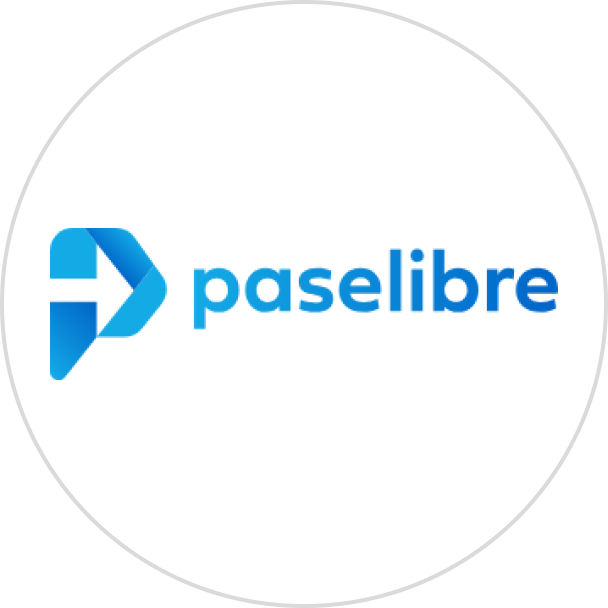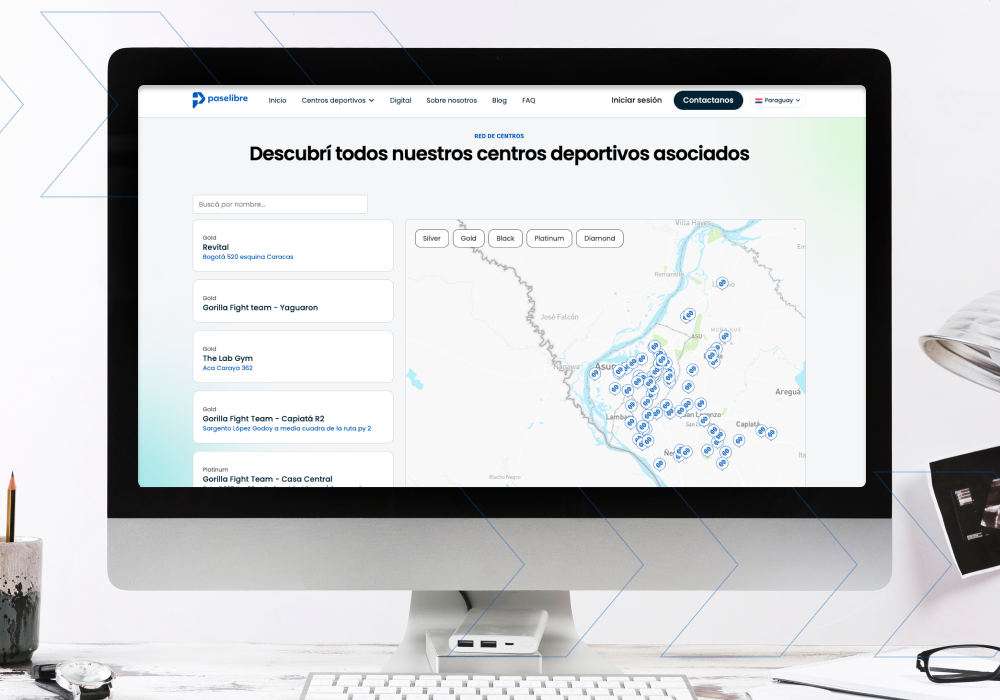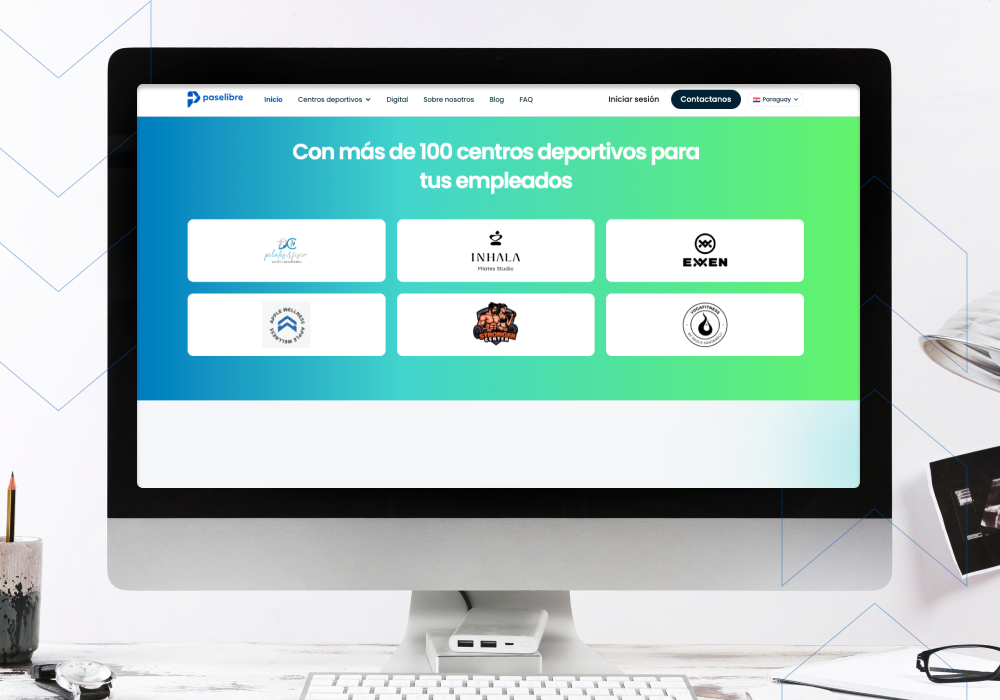Paselibre


Switch enabled Paselibre to enter the Paraguayan market at unprecedented speed by replicating its existing architecture and delivering a fully operational, country-specific platform in just one month. As a result, Paselibre secured early client adoption, unlocked immediate revenue opportunities, and achieved a low-risk, scalable foundation for its expansion.
Paselibre is a corporate benefit for those companies that care for and motivate their employees. They offer unlimited access to more than 600 sports and wellness centers in Uruguay, featuring a wide variety of activities, locations, and hours, through a B2B2C subscription model.
Companies are currently seeking various ways to attract and retain employees, and Paselibre was established in 2019 to revolutionize corporate wellness through innovative benefits and high perceived value in our local market.
Maintaining a healthy work-life balance is crucial not only for health and relationships but also for improving employees' productivity and ultimately their performance, making Paselibre an ideal option for both employees and employers.


Paselibre aimed to expand its business into the Paraguayan market. The primary challenge was adapting its existing, single-country software platform to support a new country with distinct operational requirements, including different currencies, payment gateways, and local regulations. The team needed to choose an architectural strategy that would balance development costs, implementation time, and operational risks to ensure a rapid, successful entry into the new market.
Time was the most critical factor in this project. Paselibre had already begun commercial activities in Paraguay, so that any delay would have directly translated into lost revenue.
The team faced a critical architectural decision. Instead of a multi-tenant re-architecture that would take months, they chose to replicate the current stable infrastructure deployed in Uruguay.
The infrastructure includes EKS with microservices and a load balancer as the ingress. Static files are stored in S3 buckets, while data is stored in RDS. This infrastructure minimized deployment times by leveraging team knowledge and existing Terraform modules.
The existing platform's modular design enabled our team to make quick, isolated changes for the Paraguayan market. This flexibility was crucial to delivering a stable and reliable solution within our strict one-month timeline.
The use of a cloud-based, "pay-as-you-go" model ensured that infrastructure costs would be elastic and scale proportionally to the size of the business in Paraguay, making the initial investment manageable.


The decision to deploy an independent system for Paraguay delivered a rapid, measurable impact, enabling Pase Libre to enter the market far sooner than anticipated.
The agile cloning approach accelerated time-to-market, preserved platform stability, and unlocked early commercial traction with new Paraguayan clients already in onboarding.
This strategic choice ensured immediate revenue opportunities while maintaining operational independence across markets.
- Time-to-Market: Full system deployment in 1 month vs. 4–5 months for a multi-tenant rebuild.
- Early Adoption: First clients acquired and expected to go live immediately.
- Risk Reduction: The Core Uruguayan platform is fully protected thanks to isolated infrastructure.
- Operational Independence: Local integrations and configurations are managed separately, with no cross-market impact.











